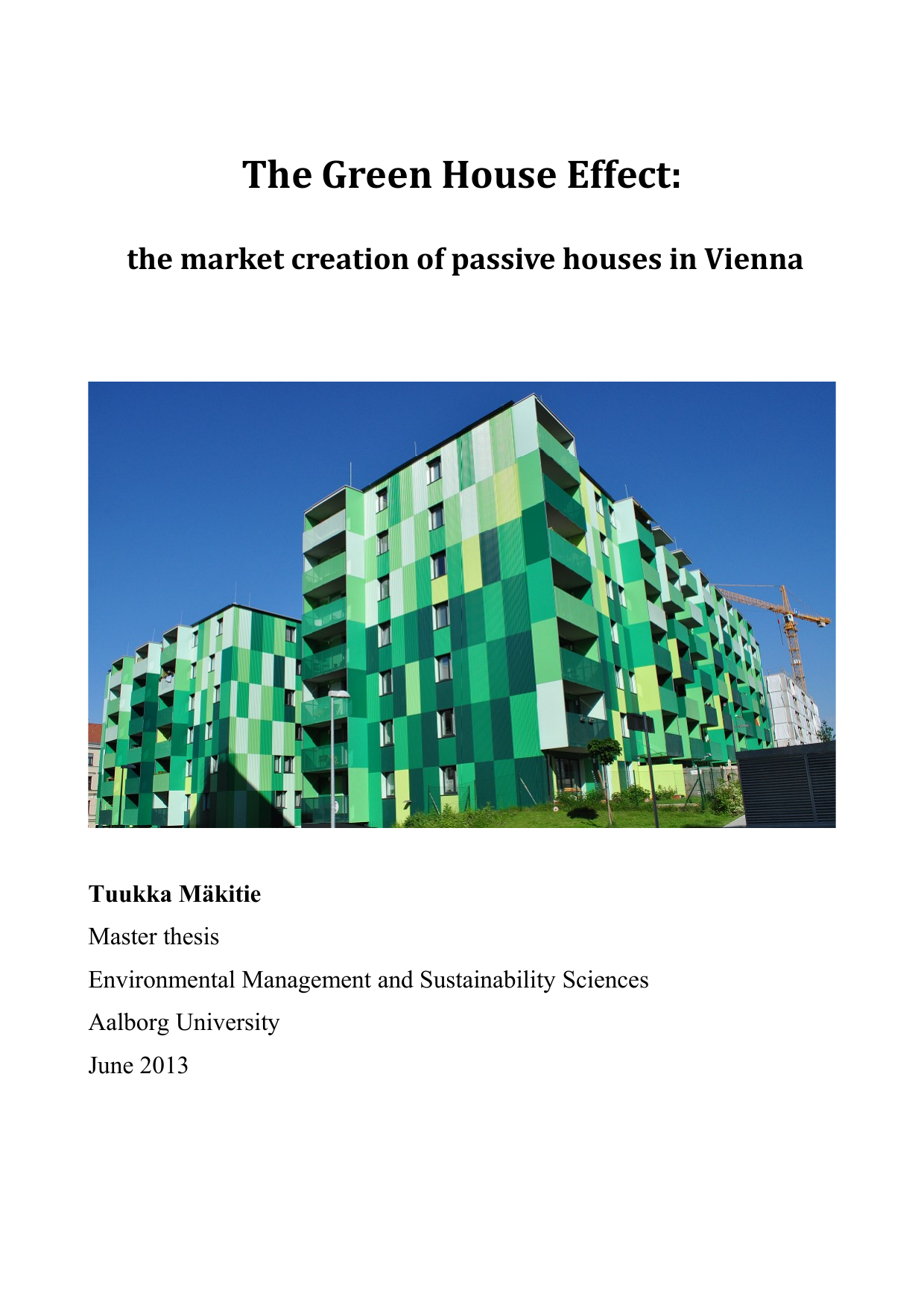
The Green House Effect: the market creation of passive houses in Vienna
Translated title
Term
4. Term
Publication year
2013
Submitted on
2013-05-27
Pages
49
Abstract
Environmental innovations have the potential to transfer the society to more sustainable direction, and their success in the market is crucial for them to make a major impact on sustainability. The market creation of residential multi-storey passive houses in the housing market of Vienna can be seen as a relative success story. This thesis aimed to understand how this market creation has taken place and find out what could be learned from this development. By using the actor-network theory, the network of market creation of passive houses in Vienna was studied by making interviews and analyzing relevant documents. The results of the empirical research concluded on four actor sectors that have created the market of passive houses in Vienna: political will, knowledge and knowhow, idealism, and economic interest. Each of these main sectors included several more precise elements of the actor-network: actors, intermediaries, translations and motives of the market creations. These elements, which are further discussed in this study, made the successful market creation of passive houses possible. This study encourages to understand the market creation of an environmental innovation as an actor-network of linked actors and other network elements, and the importance of the coherence of this network for the success of the product.
Keywords
Documents
